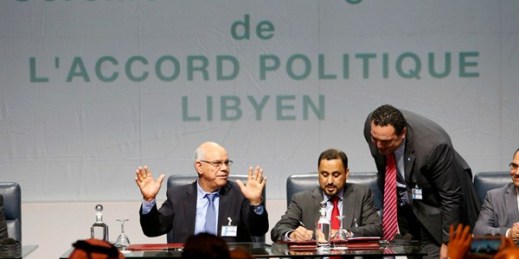
On Dec. 17, dozens of delegates from Libya’s two rival parliaments, as well as from local municipalities and civil society, signed a United Nations-brokered deal to form a national unity government and hopefully halt the country’s long descent into unrest and civil war. Talks had been ongoing for almost a year, with plenty of obstacles along the way. But almost a month on, the agreement’s prospects are decidedly mixed. The nascent Government of National Accord has yet to be fully formed. A nine-member presidential council is up and running, although working mostly from Tunis. Overall, the power-sharing process outlined in […]
